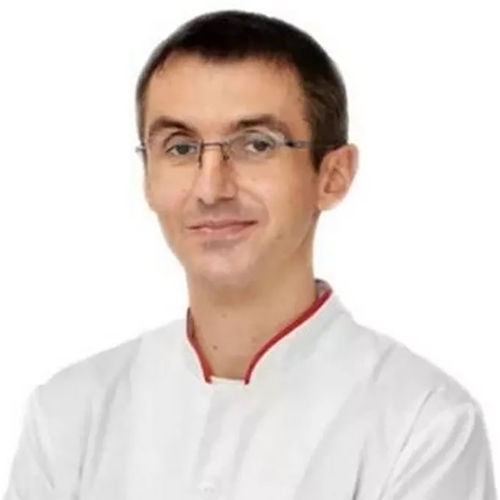How to protect kids at the doctor's office or other Healthcare Services.
- Dignity 4Patients

- Nov 16, 2023
- 4 min read

By P. O'Donoghue - Dignity4Patients - 16.11.2023 - [IRELAND]
New allegations of paediatricians accused of sexually abusing children, have brought the issue of sexual abuse in health care settings back into the public discussion, raising questions for parents about how to protect their children from predators who abuse children under the guise of medical care.
Last year, the American Academy of Paediatrics released guidance on how to identify and prevent such abuse. The paper referenced the high-profile case involving the USA Gymnastics team physician Larry Nassar, who was accused of abusing at least 265 girls over 22 years. The case shows that the trust placed in a physician can be manipulated to cover predatory behaviour.
Many victims said they were abused by Nassar during every visit, even when their parents were in the room. Another allegation against Kauff says the abuse occurred annually during routine physical examinations. Victims who filed complaints against Kauff said he abused them while their parents were in the examination room by positioning his body to screen their parents view.
How common is sexual abuse of children by doctors and medical professionals?
The American Academy of Paediatrics’ guidance says that in the United States, an estimated 15% to 25% of girls and 5% to 10% of boys suffer sexual abuse.
Victimization at the hands of health care professionals is a less understood subset of sexual abuse against children. Instances become known through litigation, reports to medical boards or accounts in the media. However, victims may not report out of fear of retaliation or not being believed, and some cases are settled out of court meaning predators continue to practice medicine.
Predators may be drawn to the field of paediatrics by the trust and authority associated with the profession, as well as the access to children it affords. Because children and parents may not be able to distinguish medical care from abuse, many cases likely go unreported.
The victims accusing Kauff of sexual abuse said they didn't understand what happened until much later in life. Many of Nassar’s and Kauff's victims say they thought the abuse it was a routine part of paediatric examinations, having no frame of reference to determine if something was abnormal.
What is part of a "normal" paediatric examination? The American Academy of Paediatrics says examinations assess children's physical health and development, which includes genital health and puberty. It is often necessary to perform an examination of sensitive areas of the child, such as the genitals, anus and breasts.
However, routine intravaginal examinations and Pap smears are not recommended until age 21. Examination of the genitals and anus should only be needed for specific complaints.
The victims who made the allegations against Kauff said they never raised issues of vaginal health during the time of the alleged misconduct.
The American Academy of Paediatrics says that in cases requiring examinations of sensitive areas, doctors should obtain consent from the patient or a parent, depending on age of the child. As part of the process, the doctor should explain why the examination is necessary and what it will entail. It is recommended that Children under the age of 18 should always be accompanied by their guardians or a chaperone.
What are signs of possible sexual abuse by medical professionals?
Health care professionals who sexually abuse patients often engage in "grooming behaviour. Such behaviour aims to win the confidence of children and their guardians. This may include favours, special attention, gifts and repeated contact with unsupervised children.
Inappropriate sexual conduct may "slowly escalate," the guidance says, from "seemingly harmless touches ... to more overt contact."
The American Academy of Paediatrics warns that perpetrators may target children they perceive as emotionally vulnerable, attention seeking, disabled or developmentally delayed.
Interestingly, the victims who made the allegations against Kauff told police that their older sisters, who were also treated by Kauff, didn't experience the same kind of abuse. One of the victims said her older sister was "more outspoken" than she was while they were growing up.
How do you talk to kids about bad touching?
Parents can teach their children the difference between “good” secrets and “bad” ones, the latter being those that an adult has told them not to discuss.
Experts recommend teaching children to use anatomically correct terms for their body parts, equipping them to be able to say that they’ve been touched on their penis or their vagina.
A child may disclose things but in a way that they understand, so if they’re able to use correct terms with trusted adults it’s easier for adults to understand the nature of what’s happening.
Sometimes when children try to share information about abuse, it can be overlooked by adults who attribute it to imagination. Parents should be mindful of when a child expresses an instinctive negative reaction to visiting a certain person and parents should be be curious as to why.
If they do, it should open the door to asking, ‘Why do you feel that way? What makes you say that?’ And then listening. If a child describes something like grooming or abuse, give it the credence it deserves. The most important thing parents can do is establish themselves as a safe and trusted place for that child to talk about these things.
What are the enduring impacts of child sexual abuse? Children who suffer sexual abuse have an increased risk of "emotional, behavioural, cognitive, social and general health impairments," according to American Academy of Paediatrics’ guidance. When abuse happens in a health care setting, the victim may be no longer able to trust medical or healthcare professionals and may not be able to seek necessary medical attention throughout the rest of their lives. This leaves victims open to healthcare neglect and early death from often preventable diseases and mental health issues.
If you have been affected by any of the issues raised in this article, you can contact Dignity4Patients, whose helpline is open Monday to Thursday 10am to 4pm.



